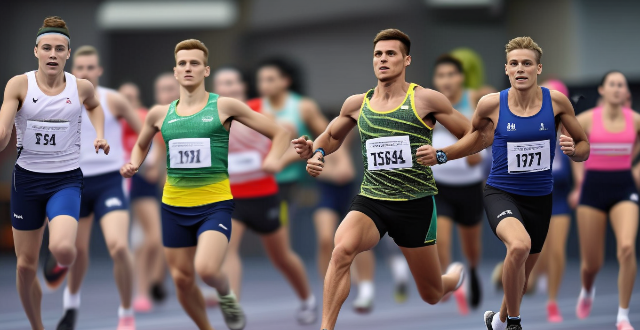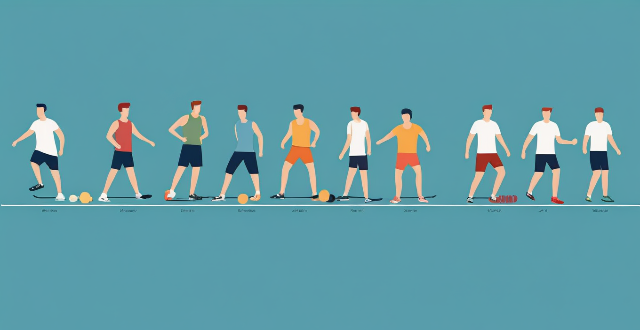Development Psychology

What is educational psychology ?
Educational psychology is a subfield of psychology that focuses on the learning process and its influencing factors. It aims to understand students' learning, thinking, and development over time, as well as how teachers can support their educational needs. Key concepts include learning theories, cognitive development, motivation, classroom management, and assessment and evaluation. Applications of educational psychology include curriculum design, special education, counseling and mental health services, teacher professional development, and research. By applying its principles, educators can create effective teaching strategies, foster positive classroom environments, and improve student outcomes.

What is the connection between educational psychology and cultural diversity in the classroom ?
The text discusses the importance of integrating educational psychology and cultural diversity in classroom settings to enhance learning experiences, social skills, and academic achievement. It highlights the benefits of cultural diversity in education, including enhanced learning experiences, improved social skills, and increased academic success. The role of educational psychology is also emphasized, as it provides insights into how cultural diversity affects student learning and development. Key concepts related to cultural diversity in educational psychology include cognitive development, motivation, social interaction, and assessment. Strategies for integrating cultural diversity into educational psychology practices are also discussed, such as culturally responsive teaching, inclusive curriculum design, collaborative learning, and professional development opportunities. Overall, the text underscores the significance of addressing cultural diversity in the classroom through educational psychology principles and practices.

How does educational psychology impact student learning ?
Educational psychology plays a crucial role in understanding and enhancing student learning. It helps educators understand cognitive development, enhance motivation and engagement, promote social-emotional learning, address diverse learning needs, and evaluate teaching strategies and interventions. By incorporating insights from educational psychology into their practice, teachers can create a more effective and supportive learning environment for all students.

What are the implications of cognitive development theories in educational psychology ?
Cognitive development theories have significant implications in educational psychology. These theories help educators understand how children think, learn, and process information. By applying these theories, educators can create effective learning environments that cater to the cognitive needs of their students. Piaget's theory suggests that children progress through four stages of cognitive development and emphasizes the importance of hands-on activities and constructivist learning. Vygotsky's sociocultural theory highlights the role of social interaction and cultural tools in cognitive development. Information processing theory focuses on working memory, cognitive load, and metacognition. By understanding these theories, educators can enhance student learning and promote cognitive growth.

What is sport psychology counseling ?
Sport psychology counseling, a specialized area ofSport psychology counseling, a specialized area of mental and emotional aspects of athletic a specialized area of psychology, focuses on the mental and emotional aspects of athletic performance. It involves working with athletes and coaches to improve mental skills, enhance performance, and manage stress related to sports. Key areas include mental skills training, performance enhancement, stress management, team building, injury rehabilitation, and career transition. Benefits include improved performance, increased confidence, reduced anxiety, better teamwork, effective coping mechanisms, and personal growth. Sport psychology counseling is crucial for enhancing an athlete's mental well-being and physical performance.

What qualifications should a sport psychology counselor have ?
Sport psychology counselors, also known as sport psychologists or mental performance consultants, are professionals who work with athletes to improve their mental and emotional skills related to sports performance. To be an effective sport psychology counselor, one should possess the following qualifications: - Educational Background: A foundation in psychology, sports science, or a related field is essential. Many sport psychology counselors have a master's degree in counseling, psychology, or sports psychology. Some positions may require a doctoral degree (Ph.D. or Psy.D.) in psychology or a related field with a specialization in sport psychology. - Professional Training: Completion of specialized training programs in sport psychology offered by recognized organizations. Hands-on experience through internships or practical placements working with athletes or teams. - Licensure and Certification: Depending on the country, state/provincial licensure as a psychologist may be required to practice independently. Obtaining certification from reputable organizations such as the Association for Applied Sport Psychology (AASP) demonstrates expertise and commitment to the field. - Skills and Personal Attributes: Ability to effectively communicate with athletes, coaches, and other support staff. Proficiency in active listening to understand athletes' needs and concerns. The capacity to empathize with athletes and provide supportive guidance. Flexibility to work with diverse populations and adapt techniques to individual needs. Strict adherence to ethical standards, including maintaining confidentiality. - Continuing Education and Development: Ongoing education to stay current with research and advancements in sport psychology. Participation in workshops, conferences, and continuing education courses. - Ethical Standards and Professionalism: Adherence to a code of ethics set forth by professional organizations. Clear understanding and maintenance of professional boundaries with clients. - Interpersonal Relations: The ability to work collaboratively with coaches, trainers, and other support staff. Understanding and respect for diverse cultural backgrounds of athletes. - Assessment and Evaluation: Proficiency in using psychological assessments to evaluate athletes' mental states. Establishing feedback systems to measure progress and adjust interventions accordingly.

How can psychology improve an athlete's performance ?
The article discusses how psychology can improve an athlete's performance by addressing various psychological factors that can influence their mindset and behavior. The author provides a topic summary of the main points covered in the text, which includes goal setting, self-talk, stress management, confidence building, and team dynamics. Each section explains the objectives and benefits of each technique and how they can be applied to enhance an athlete's mental toughness, resilience, and winning mindset. The conclusion emphasizes the importance of incorporating psychology into an athlete's training regimen for overall well-being and enjoyment of sports.

What are the benefits of seeking sport psychology counseling for athletes ?
Sport psychology counseling provides athletes with numerous benefits, including improved performance, stress management, mental toughness, enhanced team dynamics, and personal growth. Athletes can develop better focus, confidence, and goal-setting abilities, learn to manage anxiety and pressure, cope with adversity, and improve communication and leadership skills within their teams. Additionally, sport psychology counseling promotes self-awareness, life skills, and balance in an athlete's life. Seeking the help of a sport psychology professional can significantly contribute to an athlete's overall well-being and success in their sport.

What are the key principles of educational psychology ?
Educational psychology focuses on understanding learning processes and applying this knowledge to improve educational practices. Key principles include developmental appropriateness, various learning theories, student-centered education, motivation and engagement strategies, effective assessment and feedback techniques, acknowledgment of social influences on learning, understanding cognitive development and information processing, and fostering emotional and social development. These principles aim to enhance teaching methods and create optimal learning conditions for students of all ages.

How can sport psychology counseling help with mental health issues such as anxiety and depression in athletes ?
Sport psychology counseling is a valuable resource for athletes dealing with mental health issues such as anxiety and depression. It involves understanding the problem, setting goals, managing stress, building confidence, developing emotional intelligence, and fostering social support. Tailored approaches, consistency, and patience are key to achieving long-term success in improving both mental well-being and performance.

How does sport psychology counseling differ from traditional counseling ?
Sport psychology counseling and traditional counseling are two distinct fields that share some similarities but also have key differences. The primary focus of sport psychology counseling is on helping athletes improve their performance by addressing mental and emotional factors that affect their sports performance, while traditional counseling focuses on helping individuals deal with a wide range of personal and emotional issues. The approach used in sport psychology counseling includes techniques such as goal setting, visualization, relaxation techniques, and cognitive restructuring, while traditional counseling uses a variety of therapeutic approaches to help individuals deal with their emotional and psychological issues. The primary goal of sport psychology counseling is to help athletes improve their performance by addressing mental and emotional factors that affect their sports performance, while the primary goal of traditional counseling is to help individuals improve their overall well-being by addressing a wide range of personal and emotional issues. Sport psychology counseling is typically sought by athletes who want to improve their performance or overcome obstacles that are hindering their success, while traditional counseling is sought by individuals who are dealing with a wide range of personal and emotional issues.

Can sports psychology improve team dynamics and cohesion ?
The text discusses the role of sports psychology in enhancing team dynamics and cohesion. Sports psychology can improve communication, build trust, promote collaboration, manage conflict, create a shared vision, foster resilience, encourage social support, and promote diversity and inclusion among team members. These interventions lead to better understanding, reduced misunderstandings, increased support and reliability, effective collaboration, constructive conflict management, a unified purpose, improved coping strategies, emotional comfort and encouragement, and an inclusive culture. Overall, sports psychology plays a crucial role in improving team dynamics and cohesion, leading to greater success for athletes and teams.

What is the significance of emotional intelligence in educational psychology ?
Emotional intelligence (EI) plays a pivotal role in educational psychology, impacting student success and well-being. Key aspects of EI include self-awareness, self-regulation, motivation, empathy, and social skills. For students, high EI correlates with better academic performance, social skill development, mental health, and resilience. For teachers, it enhances classroom management, instructional strategies, student relationships, and professional development. Schools benefit from a positive culture, effective intervention programs, and increased parental involvement when focusing on EI. Integrating EI into education fosters a generation equipped for academic, emotional, and social success.

Are there any risks or drawbacks associated with sport psychology counseling ?
Sport psychology counseling is a specialized form of psychological intervention that aims to enhance athletic performance, improve mental toughness, and foster personal growth in athletes. While the benefits of sport psychology counseling are well-documented, it is essential to consider any potential risks or drawbacks associated with this type of intervention. The risks and drawbacks include: - Lack of qualified professionals - Overreliance on counseling - Inappropriate interventions - Ethical considerations - Financial costs - Cultural differences To mitigate these risks, athletes should seek out qualified professionals with appropriate certifications and experience in sport psychology counseling, communicate openly with their counselor about their goals and concerns, choose counselors who prioritize ethical practices, explore options such as group sessions, online counseling, or sliding scale fees to reduce costs, and counselors should strive to understand and respect the cultural backgrounds of their clients and adapt their approaches accordingly. By addressing these issues proactively, athletes can maximize the benefits of sport psychology counseling while minimizing any potential negative effects.

How does sports psychology contribute to injury recovery and rehabilitation ?
Sports psychology can contribute to injury recovery and rehabilitation by helping athletes cope with psychological challenges, develop confidence and self-belief, establish good habits and routines, and adjust to life after injury. Incorporating sports psychology into an athlete's rehabilitation program can lead to better results and quicker recovery.

Can sport psychology counseling be beneficial for non-athletes as well ?
Sport psychology counseling can be beneficial for non-athletes as well. The techniques used in sport psychology, such as cognitive restructuring, relaxation training, and visualization, can help individuals manage stress, anxiety, and depression. Additionally, these techniques can enhance performance in various areas of life, develop better coping skills, and increase self-awareness. By applying the principles and techniques used in sport psychology to everyday life situations, individuals can improve their mental health, enhance their performance, develop better coping skills, and increase their self-awareness.

What is sports psychology and how does it impact athletic performance ?
Sports psychology is a specialized branch of psychology that focuses on how psychological factors influence athletic performance. It encompasses the study of athletes' motivation, mental preparation, concentration, confidence, team dynamics, and the psychological aspects of injury and recovery. By understanding these elements, sports psychologists help athletes enhance their performance, cope with stress, and achieve peak mental states for competition. The key areas of sports psychology include motivation, mental preparation, concentration, confidence, team dynamics, and injury and recovery. Motivation involves intrinsic and extrinsic motivation, as well as goal setting to improve focus and commitment. Mental preparation includes visualization and imagery, self-talk, and flow state. Concentration involves focus management and ignoring distractions. Confidence includes self-efficacy and mental toughness. Team dynamics involve group cohesion and role acceptance. Injury and recovery involve coping strategies for dealing with the emotional impact of injuries and maintaining motivation and positive mindset during rehabilitation. The impact of sports psychology on athletic performance is multifaceted, including enhanced performance through improved focus and increased resilience, mental health benefits such as stress reduction and boosted self-esteem, and team synergy through better communication and coping with pressure. Overall, integrating sports psychology into training regimes can help athletes cultivate the mental fortitude needed to reach their full potential and enjoy a healthier sporting lifestyle.

What role does environmental psychology play in promoting sustainable behavior ?
This text discusses the role of environmental psychology in promoting sustainable behavior. It highlights key concepts such as perception and cognition, attitudes and values, and behavior change. It also suggests strategies for promoting sustainable behavior, including education and awareness campaigns, community engagement and participation, policy interventions, and technology and innovation. The text concludes that environmental psychology plays a significant role in understanding human perceptions, attitudes, and behaviors related to the environment, and that applying its principles can encourage individuals to adopt sustainable practices and contribute to a more sustainable future.

What is sports psychology and how does it benefit athletes ?
Sports psychology is a specialized branch of psychology that focuses on the psychological and mental aspects of sports and physical activity. It involves the study of how an athlete's thoughts, emotions, attitudes, and behaviors affect their performance in sports or exercise. Sports psychologists work with athletes to enhance their mental skills, improve their performance, and cope with stress and pressure. Benefits include improved performance, enhanced motivation, emotional regulation, team cohesion, injury recovery, and career longevity.

What is environmental psychology, and how does it relate to climate issues ?
The topic is about Environmental Psychology, whichThe topic is about Environmental Psychology, which that studies the interrelation which is a branch of psychology that studies the interrelationships between humans and their surroundings. It explores how our physical surroundings influence our thoughts, emotions, behaviors, and well-being. The key concepts in environmental psychology include perception of the environment, cognitive maps, environmental preferences, human behavior in context, restorative environments, and urban design and planning. Environmental psychology relates to climate issues by understanding public perception, promoting pro-environmental behavior, designing sustainable environments, mitigating climate anxiety, and enhancing environmental education. It plays a crucial role in understanding human attitudes, perceptions, and behaviors concerning climate issues. By applying its principles, we can better promote sustainable practices, design supportive environments, and help individuals and communities adapt to the challenges posed by climate change.

Can sports psychology help athletes deal with failure and loss more effectively ?
Sports psychology can help athletes deal with failure and loss by providing strategies for goal setting, visualization, self-talk, stress management, and coping mechanisms. These techniques enhance mental resilience and promote overall well-being, allowing athletes to perform at their best despite challenges.

What is the impact of sports psychology on an athlete's overall well-being ?
Sports psychology plays a crucial role in enhancing an athlete's overall well-being by addressing various aspects such as mental preparation, motivation, confidence building, stress management, and injury recovery. Mental preparation includes goal setting, visualization, and task focus; motivation involves intrinsic motivation, goal setting, and self-talk; confidence building entails developing a positive mindset, celebrating successes, and learning from mistakes; stress management includes breathing exercises, mindfulness practices, and time management; and injury recovery provides emotional support, coping strategies, and return-to-play planning. By addressing these aspects, sports psychology helps athletes perform at their best while maintaining their mental and physical health.

Can sports psychology techniques be applied to non-athletes for general well-being ?
Sports psychology techniques can improve non-athletes' well-being by setting goals, visualizing success, using positive self-talk, practicing mindfulness, and relaxation techniques.

In what ways can sports psychology aid in injury rehabilitation and recovery ?
Sports psychology aids in injury rehabilitation by managing emotions, developing a positive mindset, promoting healthy habits, and helping athletes return to their previous level of performance.

How long does it typically take to see results from sport psychology counseling ?
Sport psychology counseling aims to improve athletic performance and mental skills. The timeline for seeing results varies based on factors like individual differences, goal specificity, commitment level, and support systems. Short-term results include increased awareness and improved focus within 1-3 months, mid-term results such as enhanced confidence and performance within 3-6 months, and long-term results like sustained success and deepened self-understanding after 6+ months of consistent counseling. Working with a qualified sport psychology professional and maintaining commitment can maximize potential for success in sports and life.

What are the benefits of applying educational psychology in curriculum design ?
The application of educational psychology principles in curriculum design can significantly improve student learning outcomes, promote their well-being, support teacher effectiveness, address diversity and inclusion, and align with modern educational goals. This approach enhances cognitive development, motivation, adaptive learning strategies, reduces anxiety, increases self-esteem, develops social skills, informs instructional decisions, encourages professional growth, aids classroom management, integrates cultural sensitivity, addresses special education needs, differentiates instruction, prepares students for future challenges, fosters lifelong learning, and effectively uses technology. Overall, this holistic approach to curriculum design benefits both students and educators, preparing learners for success in the 21st century.

How can educational psychology aid in addressing students' mental health issues ?
Educational psychology can aid in addressing students' mental health issues by understanding the role of emotional intelligence, promoting a positive school climate, providing early intervention and support services, encouraging self-care and resilience, and facilitating collaboration between educators and mental health professionals.

What is the role of educational psychology in special education ?
The text discusses the significant role that educational psychology plays in special education. It highlights various areas where insights from educational psychology contribute to understanding and supporting students with disabilities or special needs, including identification and assessment, instructional planning, behavior management, learning supports, transition planning, and family involvement. The summary underscores that by applying principles of educational psychology, educators can design more effective strategies, foster inclusive environments, and promote the overall well-being and academic success of all students.

What are the benefits and drawbacks of pursuing a career in sports psychology ?
Pursuing a career in sports psychology can have both advantages and disadvantages. Sports psychologists promote mental health awareness, reduce stigma, and enhance athletic performance through resilience and coping strategies. They also enjoy continuous learning opportunities and work with diverse clientele. However, the job market is competitive, and opportunities may be limited outside of professional sports settings. Additionally, sports psychologists often face high-pressure environments and emotional tolls from their clients' struggles. Skepticism and resistance towards their role may also exist due to lack of understanding or macho attitudes in some sports cultures.

How can educational psychology help in classroom management ?
Educational psychology helps in classroom management by providing insights into student behavior, motivation, learning styles, and emotional needs. By understanding these factors, teachers can create effective strategies for managing challenging behaviors, promoting student motivation, tailoring teaching styles to different learning styles, enhancing student-teacher relationships, and addressing emotional needs. This leads to a positive and effective learning environment for all students.